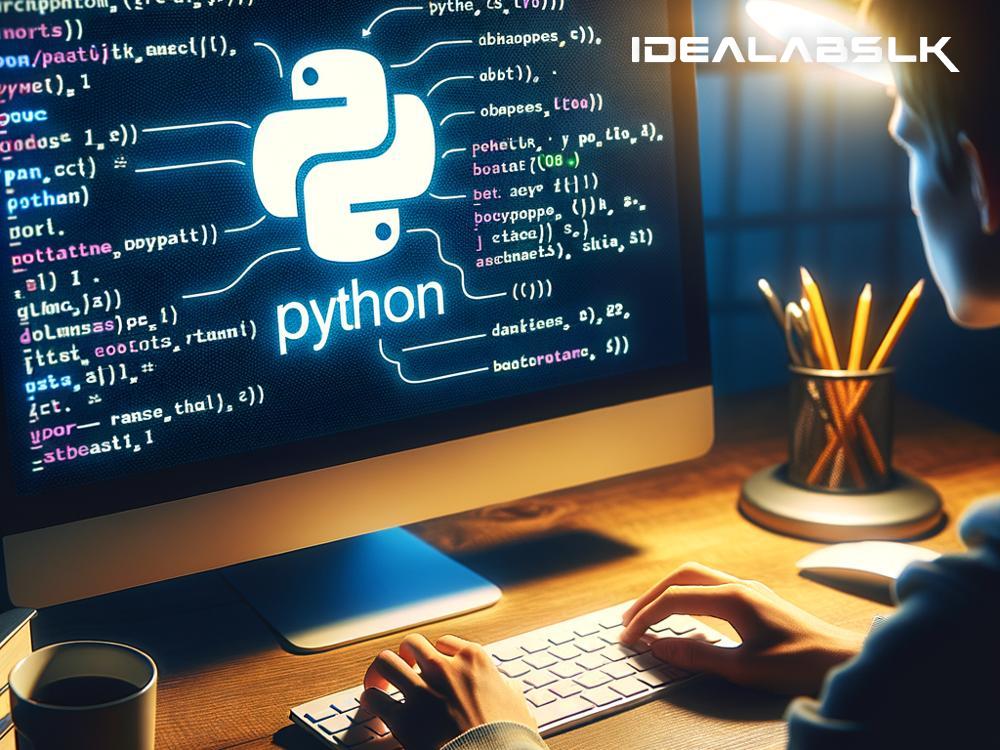Unlock the World of Coding: A Beginner’s Guide to Learning Python
In today's digital age, coding has become an essential skill, much like reading and writing were centuries ago. Among the plethora of programming languages out there, Python shines as a beacon for beginners aimed at unlocking the endless possibilities of computer science. Why Python, you may ask? It’s because Python is not only powerful and versatile, but it is also incredibly user-friendly and readable, making it an excellent starting point for novices in the world of coding.
If you’re gearing up to embark on your coding journey but don’t know where to start, you’ve come to the right place. This guide will walk you through learning Python, step by simple step. So, let's dive in!
Step 1: Grasp the Basics Before trying to sprint, you need to learn how to walk. Begin with understanding the fundamentals of Python. Familiarize yourself with the syntax (the rules of the language), data types (like strings, integers, and floats), and basic operators. This foundation will enable you to start writing simple programs. Many free resources are available online, such as Python’s official documentation and tutorials geared towards beginners.
Step 2: Practice Coding Like learning a musical instrument or a new language, practice is key in coding. Begin with small, manageable projects to strengthen your understanding and confidence. Online platforms like Codecademy, LeetCode, and HackerRank offer hundreds of exercises to hone your skills. Remember, encountering errors is a part of the learning process. Debugging (finding and fixing errors) is a valuable skill in itself.
Step 3: Explore Python Libraries One of Python’s strengths is its extensive collection of libraries – pre-written codes by other programmers that you can use to perform many tasks without having to code from scratch. Some popular Python libraries include NumPy and Pandas for data analysis, Matplotlib for data visualization, and TensorFlow and PyTorch for machine learning. Experimenting with these can open new doors to what you can accomplish with Python.
Step 4: Work on Projects Once you feel comfortable with the basics and have played around with some libraries, it’s time to test your skills on larger projects. This could be anything from building a website using Flask or Django (Python web frameworks), creating a game, or even automating simple tasks on your computer. Working on projects not only solidifies your coding skills but also helps build a portfolio that you can showcase to potential employers or clients.
Step 5: Join a Community Coding can sometimes feel lonely, but remember, there’s a huge community out there of beginners and pros alike. Joining a community can provide support, motivation, and opportunities to collaborate on projects. Websites like GitHub offer a platform to share your projects with the world, contribute to others’ projects, and even contribute to open-source projects. Additionally, forums like Stack Overflow and Reddit’s r/learnpython are great places to ask questions, share knowledge, and connect with other Python enthusiasts.
Step 6: Keep Learning The field of computer science is ever-evolving, and there’s always something new to learn. Stay curious and keep challenging yourself with new languages and technologies. Python is a great foundation, but understanding other languages like JavaScript, C++, or SQL will broaden your skills and opportunities. Moreover, don’t forget to keep up with new developments in Python itself.
Conclusion Embarking on the journey to learn Python is like setting off on a grand adventure. There will be challenges and frustrations along the way, but the rewards are immense. Not only does coding offer excellent career opportunities, but it also teaches you how to think logically and solve problems effectively.
Remember, every expert coder was once a beginner. With patience, persistence, and practice, you too can master Python and unlock a world of possibilities. So, equip yourself with these steps, dive into the code, and start creating something amazing today. Happy coding!

